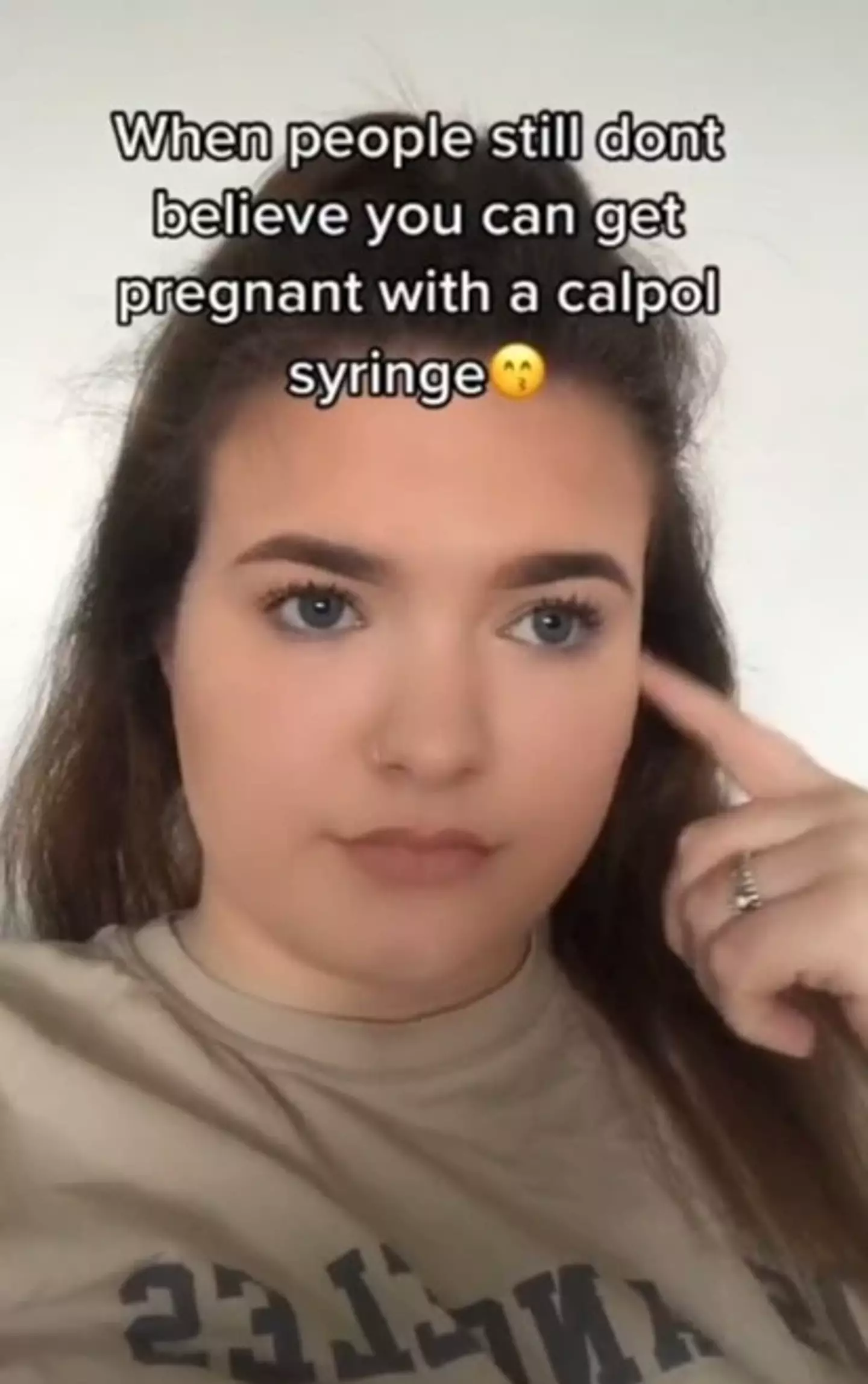.png)
A mum who said she fell pregnant after inseminating herself with a Calpol syringe has gone viral.
Shannon Nazarowicz, from Manchester, UK, claims that she impregnated herself when she was 19 via a 'home insemination'.
Watch here:
Shannon - now 23 - often shares updates about her daughter Ocean on TikTok, but many people don't believe that she inseminated herself using a Calpol syringe.
As you can tell from the video above, it appears to grate on Shannon, who said her daughter 'would say otherwise'.
Advert
Shannon is a lesbian but was keen to have a baby, so she searched for a consenting sperm donor; and within three months of finding him, she said she used his semen to inseminate herself with a Calpol syringe.
Within her second month of home insemination, she said she fell pregnant.
Commenting on one of Shannon's videos, a mum joked: "So when you do conceive and the baby is born and gets ill you will be reminded of their conception every time."
"People saying it's unsanitary - like they haven't shoved anything up there," another scoffed.
Advert
While a third added: "omg i didn’t know this was a thing... or possible. but i love that it is."

Indeed, the NHS lists donor insemination as a primary means of having a baby for members of the LGBTQ+ community.
The NHS website states: "Sperm is put inside the person getting pregnant. This can be done at home, with sperm from a licensed fertility clinic, a sperm bank or someone you know.
Advert
"If you choose donor insemination, it's better to go to a licensed fertility clinic where the sperm is checked for infections and some inherited conditions. Fertility clinics can also offer support and legal advice.
"If the sperm is not from a licensed fertility clinic, the person donating the sperm can get tested for sexually transmitted infections at a sexual health clinic.
"In the UK, the Human Fertilisation and Embryology Authority (HFEA) makes sure licensed fertility clinics run safely and legally."
Other options include IUI (intrauterine insemination), surrogacy, adoption or fostering, and co-parenting.
Advert
You can find out more about having a baby if you're LGBTQ+ here.
